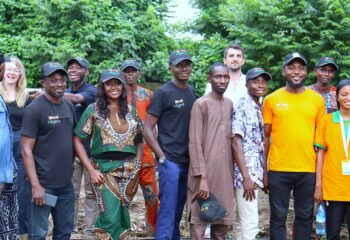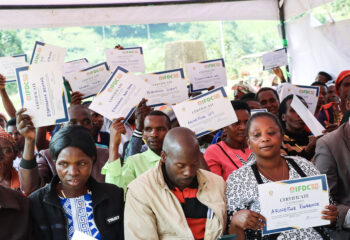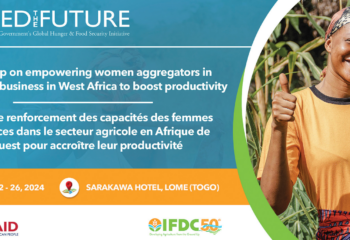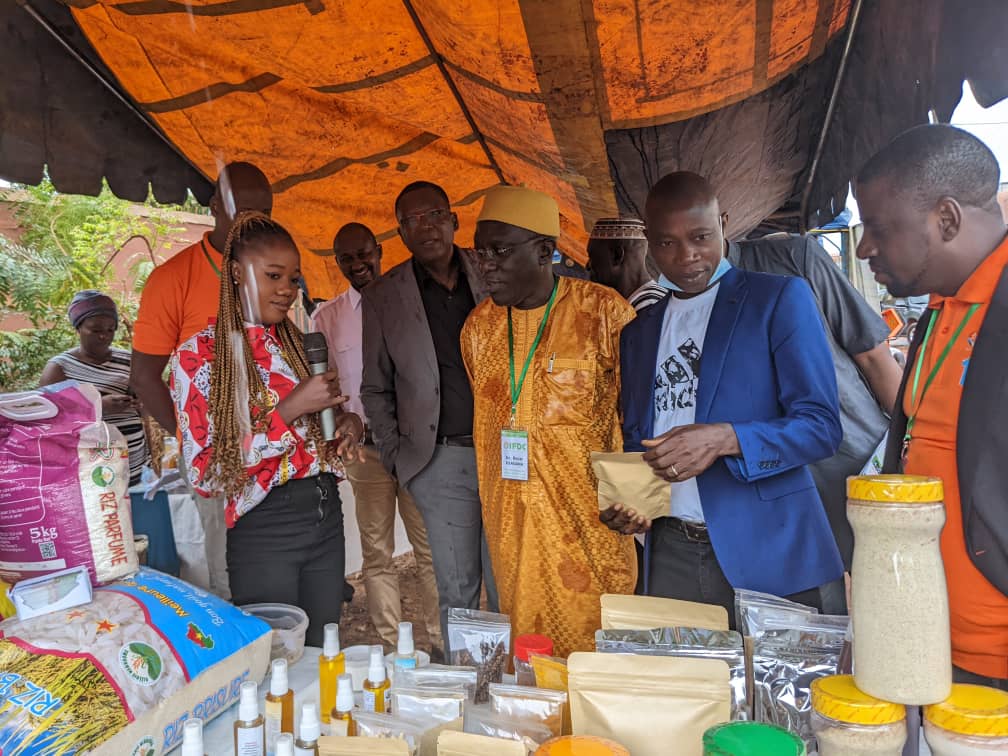
IFDC opened its doors in Burkina Faso to the public May 23-24, 2022, to celebrate its 19 years of activity in the country. The theme of the event was “IFDC 19 years in Burkina Faso, Developing Agriculture from the Ground Up.
Accredited in Burkina Faso for 19 years, IFDC has been operating in the country since 2003 to bring together innovative research, market expertise, and strategic partnerships from the public and private sectors and to scale up sustainable solutions for soil and plant nutrition that benefit farmers, entrepreneurs, and the environment.
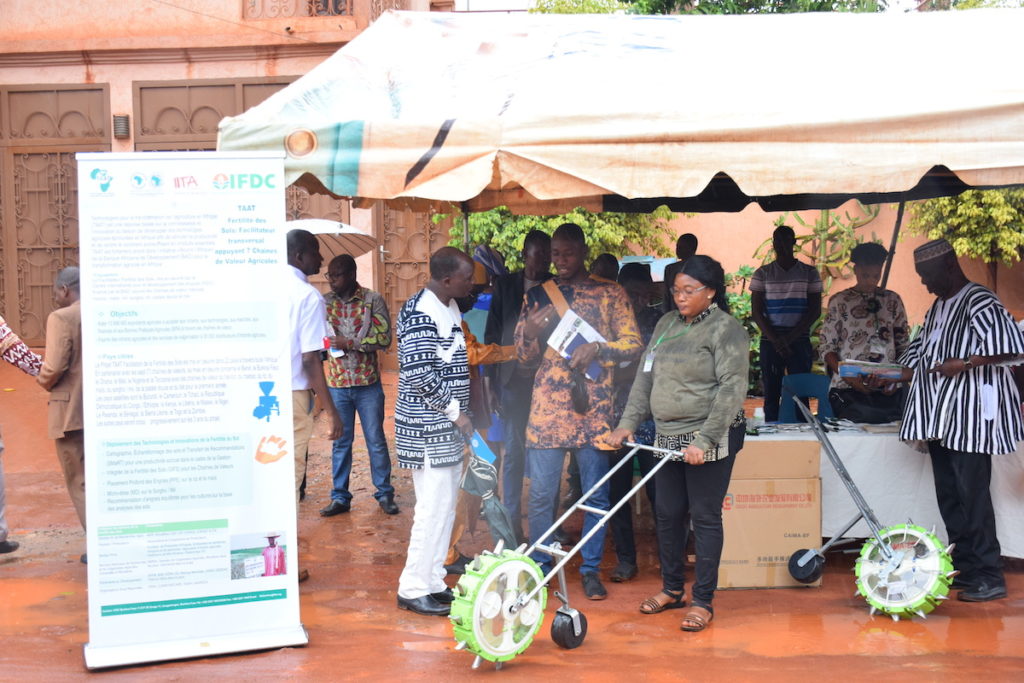
Interventions include support to the fertilizer sector, regeneration of degraded and nutrient-depleted soils, soil fertility management, women’s empowerment, use of local phosphate rock, strengthening agribusiness, development of agricultural value chains, promotion of urea deep placement, and implementation of digital technologies and ICT solutions for access to market information, weather and pest forecasts, and crop and business management advice.
I am proud to see in the fields of Douna, Bama, and the Sourou Valley that producers are perfectly using the microdosing technique and urea deep placement (UDP), which are the fruits of IFDC’s research, to improve the yield of their crops.
Adodo Abalo, Burkina Faso Country Representative
In his welcoming remarks, Adodo Abalo, IFDC country representative of Burkina Faso, said, “It is in continuity with all the development initiatives undertaken by the government and with a real desire to accelerate the modernization of agriculture that IFDC is implementing its interventions in Burkina Faso and in the sub-region in general. I am proud to see in the fields of Douna, Bama, and the Sourou Valley that producers are perfectly using the microdosing technique and urea deep placement (UDP), which are the fruits of IFDC’s research, to improve the yield of their crops.”
By organizing these Open Door events, IFDC intends to inform its public and private partners about its 19 years in Burkina Faso and about its different projects that are contributing to improvement in the agricultural production and productivity of the country.
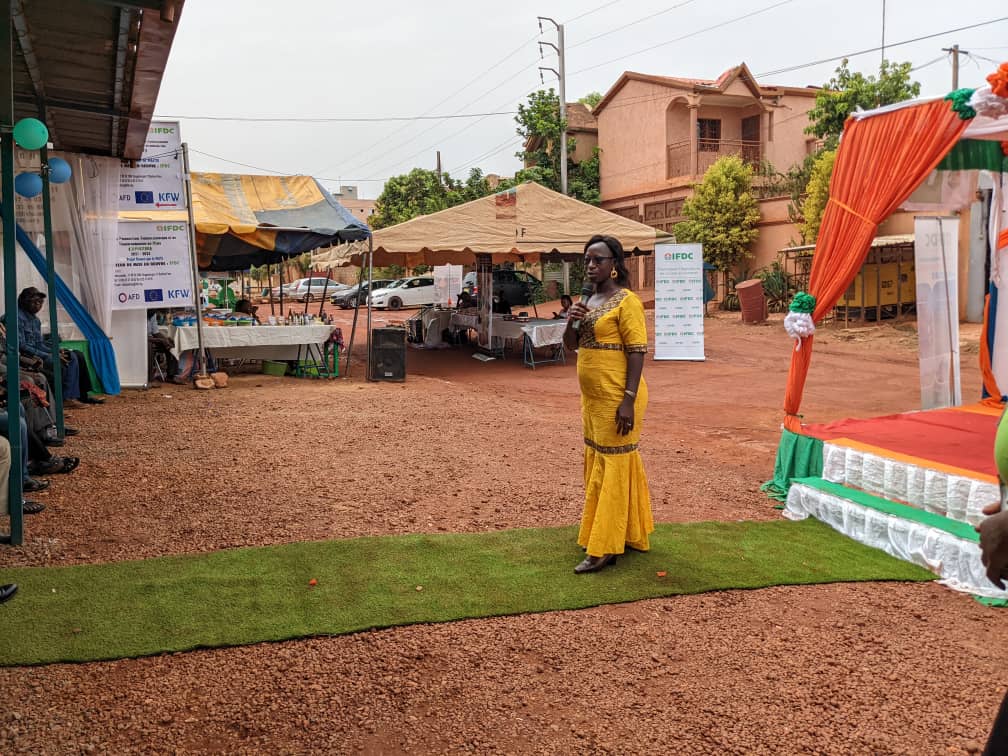
IFDC began its activities in Burkina Faso in 2003 with research during a collaboration with the International Crops Research Institute for the Semi-Arid Tropics (ICRISAT). A satellite office was set up in 2009 as part of the implementation of the From Thousands to Millions (1000+) project, and then in 2017, the IFDC office was officially established during the implementation of the Fertilizer Sector Reform Support Project in Niger (PARSEN), funded by the Millennium Challenge Corporation (MCC)/Millennium Challenge Account (MCA). Since 2017, IFDC’s projects and programs in Burkina have included:
- Feed the Future Enhancing Growth through Regional Agricultural Input Systems (EnGRAIS) Project In West Africa. Funded by the U.S. Agency for International Development (USAID), the EnGRAIS program aims to increase the availability and use of appropriate and affordable fertilizers for smallholder farmers in West Africa. It promotes a competitive, inclusive, and private sector-led regional fertilizer market. EnGRAIS has developed the innovative Fertilizer and Seed Recommendations for West Africa Map and agricultural input packages to help farmers boost their productivity.
- Technologies for African Agricultural Transformation (TAAT). IFDC led the TAAT Soil Fertility Enabler compact, which supports selected value chains in soil fertility management in six target countries. A total of 463 plots were established to demonstrate fertilizer technologies, and 492 farmers were trained in the fundamentals of integrated soil fertility management (ISFM). Funded by the African Development Bank, TAAT interventions in Burkina Faso focused on improving soil fertility through the deployment of proven technologies that increase agricultural production.
- Smallholder Agricultural Productivity Improvement Program (SAPEP). SAPEP, funded by the Islamic Development Bank, is helping West African smallholder farmers overcome productivity challenges related to soil health, seeds, training, and market access.
- Programme d’Appui à la Modernisation des Exploitations Familiales Agricoles – Volet Intrants (PAMEFA-Vi). PAMEFA-Vi, a program financed by the Swiss Agency for Development and Cooperation (SDC), aimed at improving food security and the income of rural households in Burkina Faso.
- Four-Country Cotton Partnership Project (C4CP). C4CP, funded by USAID, targeted men and women farmers in the cotton-producing areas of Benin, Burkina Faso, Chad, and Mali. It significantly improved household production, income, and food security of smallholder farmers.
- West Africa Fertilizer Program (WAFP). WAFP, a regional program funded by USAID, helped improve the fertilizer policy and regulatory framework and strengthen fertilizer supply and distribution systems in Burkina Faso.
- Contractual Agriculture and Agroecological Transition Program (PACTE) of the Ministry of Agriculture, financed by the French Development Agency and KfW Development Bank, involves two projects, the Project for the Intensification of Agroecological Production and Processing of Peanuts in Burkina Faso (PIPATA-BF) and the Project for Agroecological Production and Processing of Maize (2PATM-BF). These three-year projects will run from 2021 to 2023.
- Toward Sustainable Clusters in Agribusiness through Learning in Entrepreneurship (2SCALE). 2SCALE Phase II is a four-year project (2019-2023) funded by the Netherlands Directorate-General for International Cooperation (DGIS).
Dr. Bocar Diagana, IFDC deputy regional director of North and West Africa, described IFDC’s intervention strategy: “IFDC’s mission is to develop better technologies to improve soil health and plant nutrition for increased farm productivity to build capacity in rural and urban markets with high-quality agricultural products that are accessible to all, especially low-income consumers. IFDC focuses on action research to create market pull and stimulate demand for improved technologies and participate in increasing production through large-scale adoption of improved technologies.”
Representing the Minister of Agriculture, Victor Bonogo, director general of the Ministry, at the official opening ceremony of the IFDC Open Door event in Burkina Faso, said he was appreciative of the Open Door event and the various good practices and products on display. He said: “We are aware of the importance of IFDC’s interventions in Burkina Faso in terms of agricultural and community development.”
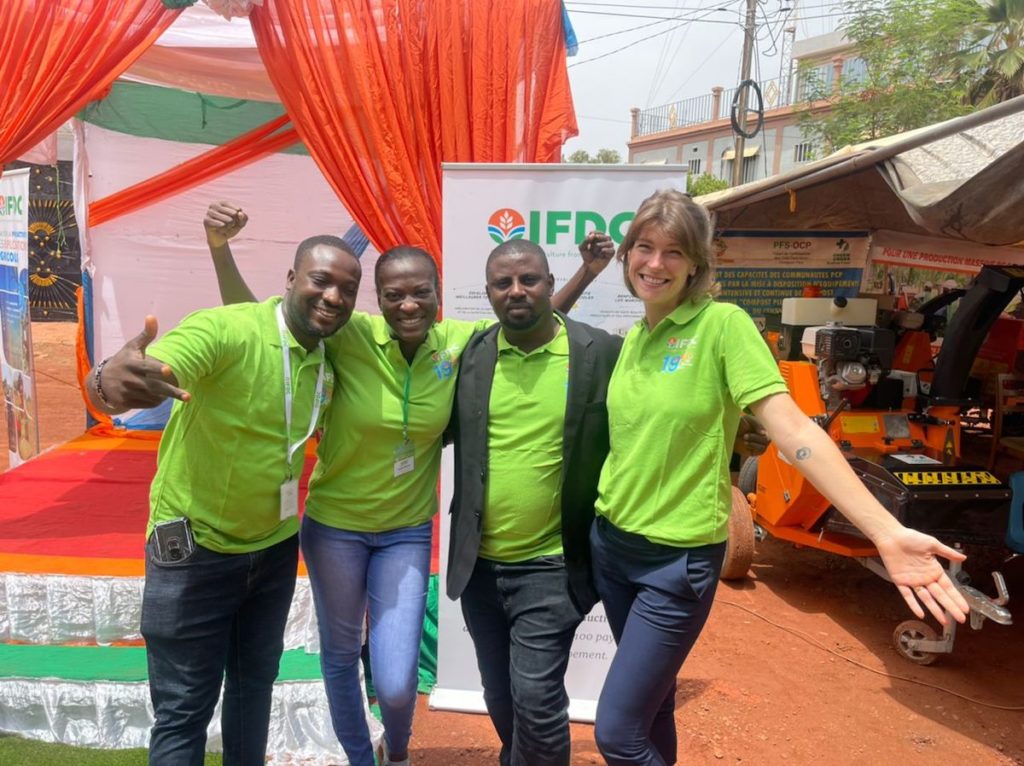
The Open Door event brings together experts, professionals, and institutions, with similar interests. It is an opportunity to answer questions about IFDC activities and their impacts at the global, regional, and national levels and an opportunity for fruitful collaboration. These Open Door days are marked by the presentation of IFDC’s ongoing projects, innovations, and skills and the exhibition of products of IFDC partners.
For more information, contact Mr. Adodo Abalo, IFDC country representative of Burkina Faso (aadodo@2scale.org).
About IFDC:
An independent non-profit organization, IFDC is active in more than 20 countries in Africa, Asia, and the Americas. By combining science-backed innovations, an enabling policy environment, holistic market system development, and strategic partnerships, the organization bridges the gap between identifying and scaling sustainable soil solutions, thereby improving household food security and enriching family livelihoods worldwide. Using an inclusive approach, IFDC employs local, environmentally friendly, and impact-driven solutions that effect change at the local, regional, and national levels.

